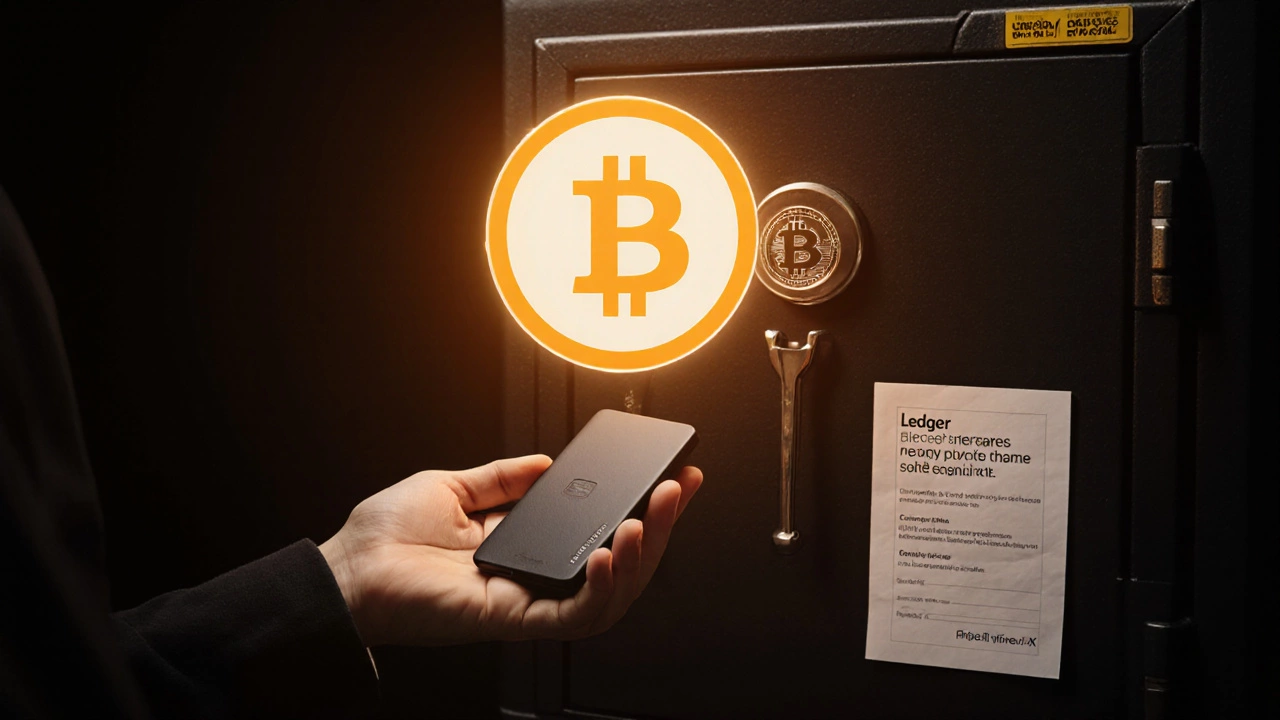Bitcoin Storage: How to Keep Your Crypto Safe and Secure
When you own Bitcoin, you don’t actually hold it like cash—you hold the private key, a unique digital code that proves you own your Bitcoin and lets you spend it. Also known as crypto key, it’s the only thing that stands between your coins and someone else taking them. If you lose that key, your Bitcoin is gone forever. No customer service, no reset button, no bank to call. That’s why Bitcoin storage isn’t just a technical detail—it’s your financial safety net.
There are two main ways to store Bitcoin: cold storage, keeping keys offline, away from internet-connected devices and hot wallets, digital wallets connected to the internet for quick access. Most beginners use hot wallets because they’re easy—apps like Coinbase or Blockchain let you send and receive Bitcoin with a tap. But if you’re holding more than a few hundred dollars, cold storage is the smart move. That means using a hardware wallet, a physical device like a Ledger or Trezor that stores your keys offline. These devices look like USB drives, connect to your computer only when you need to transact, and stay locked up otherwise. Even if your phone gets hacked or your laptop crashes, your Bitcoin stays safe.
People often think storing Bitcoin on an exchange is safe—after all, it’s just sitting there in their account. But exchanges are targets. Hackers have stolen billions over the years. If the exchange gets taken down, you lose everything. That’s why serious holders never keep large amounts on exchanges. Instead, they move their Bitcoin to their own cold storage after buying. Some even split their holdings: a small amount in a hot wallet for daily spending, the rest in multiple cold wallets stored in different places. It’s not complicated, but it does require discipline.
And don’t forget the paper backup. Most hardware wallets give you a 12- or 24-word recovery phrase. Write it down on paper. Keep it in a fireproof safe. Don’t take a photo of it. Don’t store it in the cloud. If someone finds that phrase, they can steal your Bitcoin—no password needed. Treat it like the master key to your house. If you lose it, you lose your coins. If someone else gets it, they own them.
The posts below cover exactly how to set up these storage methods, what tools actually work, where people go wrong, and how to avoid the traps that cost others their life savings. Whether you’re just starting out or looking to upgrade your security, you’ll find real, no-fluff advice here—no hype, no promises of getting rich, just how to keep what’s yours safe.
What Do I Do With Bitcoin Once I Buy It? A Practical Guide for Beginners

After buying Bitcoin, the real work begins. Learn how to store it safely, use it wisely, avoid scams, and handle taxes in Australia. No fluff-just what actually matters.
Read More >>